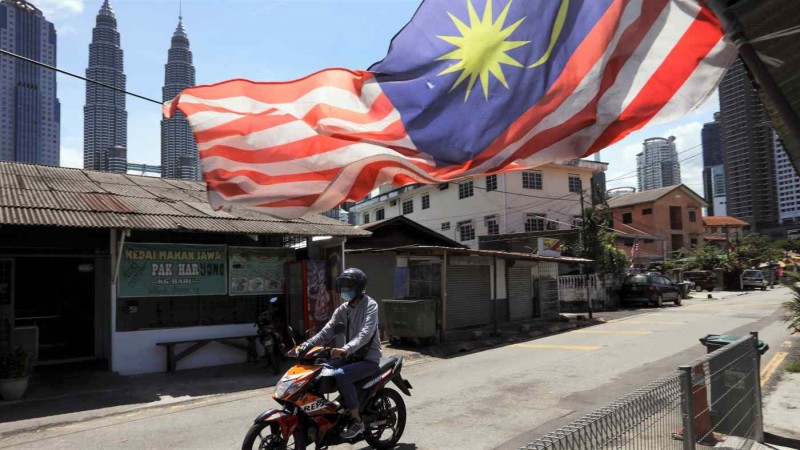
Image credit: Nikkei Asian Review
LETTERS: The 2022 Budget was announced at a time when the economy is expected to pick up and Malaysia will benefit from the global recovery.
This was reflected in the 24.7 per cent growth in total exports during August, surpassing the consensus estimates of 14.6 per cent. Also, the total allocation of RM332.1 billion is the highest ever.
Typically, the general focus of the budget is to ensure vulnerable groups are taken care of.
Bantuan Keluarga Malaysia (BKM) will be the key measure, whereby the cash transfer programme has been raised from RM7 billion this year to RM8.2 billion next year with 9.6 million recipients.
here are also measures to accelerate micro, small and medium enterprises' (MSMEs) growth through various microfinancing packages offered by government agencies, including zero funding costs, along with loan moratoriums.
Such packages would ease the financial burden for businesses in this early stage of recovery.
But the equities market was uneasy about Cukai Makmur, the one-off windfall tax to be incurred for companies with chargeable income of over RM100 million for the financial year 2022.
The tax rate will be 24 per cent for the first RM100 million and 33 per cent after. The tax will support the government's programme on boosting public health to face future challenges, as well as for the low-income group to get back on their feet.
This will affect a few hundred listed companies' corporate earnings and, therefore, the equities valuation would need to be revisited as the price-to-earnings ratio (PER) would change.
Nonetheless, the windfall tax is just a one-time affair. As such, the impact will not be long lasting. In all honesty, the government is walking on a tight rope.
On one hand, the need to rejuvenate the economy is utterly pressing as businesses have not been able to function in an orderly fashion and the fiscal stance has to be expansionary.
In this respect, the budget deficit is anticipated to remain at six per cent of gross domestic product next year, smaller compared with the estimated level of 6.5 per cent this year.
A higher debt ceiling of 65 per cent has provided the space for the government to prescribe more spending.
Simultaneously, credit rating agencies would also need to be taken into consideration as the country has experienced its sovereign rating downgrade last year.
Further downgrades would be equally bad as the cost of borrowings would be higher, a deterrent to the recovery process.
Fortunately, the ringgit has not been severely affected while foreign funds remain a net buyer in the fixed income market.
In fact, the rise in Brent crude oil prices, currently over US$80 per barrel, would be a boon to government coffers as close to 19 per cent of total government revenue is accrued to the oil and gas-related sector.
In some ways, the need to introduce new taxes may seem inevitable.
Resurrecting the Goods and Services Tax (GST) may seem to be a compelling option, given its track record in bringing large revenue to the government.
Many business associations and owners have expressed support for the GST, which is simpler, fairer and more transparent to implement.
Perhaps more regular consultations with industry players would help to allay any concerns should the government decide to choose this route.
The government has also indicated that the Fiscal Responsibility Act will be tabled next year. This will provide the right avenue for transparency and a sense of accountability as well as responsibility when the budget is prepared and implemented.
This will help ensure the process of introducing new taxes is almost seamless as the buy-in from the public can be easily procured.
Hope for a swift recovery appears to be increasingly building up when talks of possible interest rate hikes next year by the major central banks gained further momentum.
By extension, the window of opportunity to restore government finances has been gradually opening. So, seizing the right moment to narrow the fiscal gap is extremely critical.
Otherwise, the government would miss the boat and when another round of negative shocks occur, the country would have less ammunition to prescribe anti-cyclical measures.
Dr Mohd Afzanizam Abdul Rashid
Chief Economist, Bank Islam Malaysia
Source: https://www.nst.com.my/opinion/letters/2021/11/746008/delicate-balancing-act

